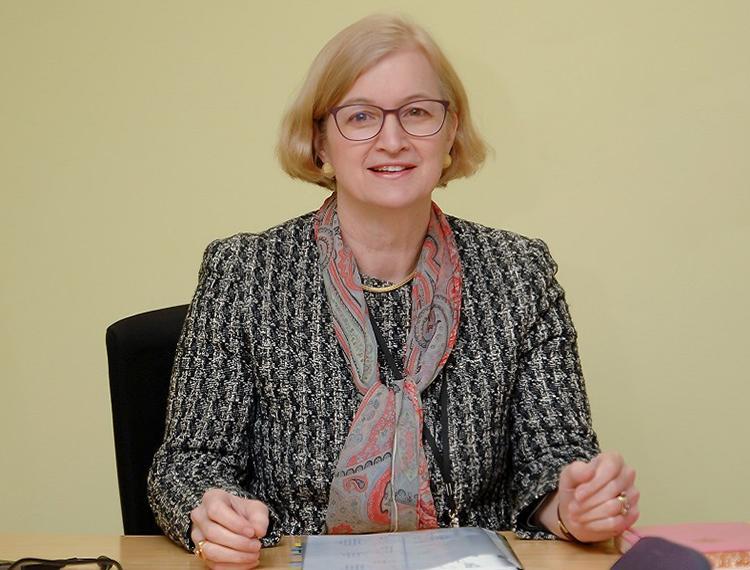Ofsted report into the impact of the pandemic across education settings

@OfstedNews: Children hardest hit by COVID-19 pandemic are regressing in basic skills and learning
Ofsted has today (10 Nov) published its second report on the effects of the COVID-19 (coronavirus) pandemic across the sectors it inspects and regulates.
- Ofsted’s second report into the impact of the pandemic finds that children who were hardest hit by school closures and restrictions have regressed in some basic skills and learning
- Some young children, who were previously potty-trained, have lapsed back into nappies, particularly those whose parents were unable to work flexibly
- Older children have lost stamina in their reading and writing, some have lost physical fitness, others show signs of mental distress, including an increase in eating disorders and self-harm
- Concerns remain about children who were out of sight during school closures, with falling referrals to social care teams raising fears that domestic neglect, exploitation or abuse is going undetected
Ofsted has today published its second report in a series looking at the effects of the COVID-19 pandemic across the sectors it inspects and regulates, from early years and children’s social care, through to post 16 education.
The report finds that some children, of all ages and backgrounds, have lost some basic skills and learning as a result of school closures and restrictions on movement.
Ofsted carried out more than 900 visits to education and social care providers during September and October. These visits are not judgemental and do not result in an inspection grade. Instead, they are a way for inspectors to hear how providers are coping with this challenging start to the new academic year. Overwhelmingly, leaders and managers have said they find the visits helpful and constructive.
Today, 5 reports have been published from the visits, reflecting on the experiences of leaders working in schools, further education and skills, early years, social care and special education needs and/or disability (SEND).
Read reports on our findings for:
A commentary from HM Chief Inspector, Amanda Spielman, published alongside the reports, says that children and learners have slipped back in their learning to varying degrees since the first national lockdown in March. Some have coped well in the face of restrictions, while others have been particularly hard hit largely because of the interplay between their circumstances and the impact of the pandemic.
Inspectors found children’s experiences weren’t necessarily determined by privilege or deprivation. Rather, those who are coping well have good support structures around them and have benefited from quality time spent with families and carers. This includes children from all backgrounds, including those within the care system, some of whom who saw relationships with carers improve.
However, among children who were greatly impacted by school closures and other restrictions, basic skills and learning have regressed. For example, some young children whose parents were unable to work more flexibly, and who experienced less time with parents and other children, have lapsed back into nappies, while others have forgotten how to eat with a knife and fork, or lost their early progress in numbers and words.
Among older children, inspectors heard that many now lack stamina in reading and writing; some have lost physical fitness; and others are showing signs of mental distress, manifesting in an increase in eating disorders and self-harm.
Across all age groups, children with SEND have been seriously affected in both their care and education, as the services that families relied on – particularly speech and language services – were unavailable.
Inspectors found that senior leaders across the board are working more intensively than ever and showing remarkable resilience. However, leaders across education and social care expressed their concerns over budgets. Covering for staff absences and maintaining enhanced cleaning regimes are pushing up costs in schools and children’s homes. These concerns are compounded in early years and further education by worries over income streams.
Ofsted also continues to be worried about the children who were out of sight during the closure of schools. Referrals to social care teams have fallen and have not returned to more typical levels since schools have reopened. This raises concerns that domestic neglect, exploitation or abuse is going undetected.
Ofsted’s first report, published last month, found that around a third of the schools visited had seen an increase in children being educated at home. Today’s report finds that this remains a concern, with around a half of schools visited seeing an increase in home schooling. School leaders reported that this was being motivated by parents’ fears about the virus, rather than their committed desire to home educate.
 Her Majesty’s Chief Inspector, Amanda Spielman said:
Her Majesty’s Chief Inspector, Amanda Spielman said:
“We have now entered a second national lockdown. This time, at least, schools, colleges and nurseries are to remain open. That is very good news indeed. The impact of school closures in the summer will be felt for some time to come – and not just in terms of education, but in all the ways they impact on the lives of young people.As it was in the first lockdown, the work of teachers, social workers and carers, with the support of parents, will again be critical to the future success and happiness of our children.”
Ofsted’s programme of visits will continue remotely during the current lockdown, and further reports will be published in December.
Commenting on Ofsted’s second report into the impact of the pandemic across education settings,
 Dr Mary Bousted (@MaryBoustedNEU), Joint General Secretary of the National Education Union (@NEUnion), said:
Dr Mary Bousted (@MaryBoustedNEU), Joint General Secretary of the National Education Union (@NEUnion), said:
“We welcome the Chief Inspector’s acknowledgement that school leaders are working tirelessly to ensure a continuity of learning in schools and colleges this term, in extremely testing circumstances.
“It is difficult, however, for anyone in education to take seriously the notion that an Ofsted visit is ‘non judgemental’. That is why the announcement of this programme of visits was held in such suspicion. Our members have told us the visits were highly disruptive and added pressure in an already highly-pressured period, where schools and colleges were establishing new ways of delivering learning. ‘Nothing else could be done that day,’ said one.
“Leaders must be allowed to focus on the difficult business of running a Covid-secure school or college. With many partially closed, and increasingly so, leaders are already fully aware of the impacts on learning and are doing everything they can to maintain a continuity for the young people in their care. This is hampered by government. The resources and support children and young people need during these stressful times cannot be magicked out of thin air. School budgets as we know were already stretched to breaking point before the pandemic, with Covid the final straw. We are pleased that Amanda Spielman has heard those complaints, although it surely did not require 900 visits to reach that conclusion.
“The disproportionate effects on SEND pupils and students are clear. A lack of access to external support services, such as speech & language therapies and delays to assessment processes and EHC plans, is having a harmful effect on young people. This again is not the fault of schools, but of a Government which is consistently underfunding SEND support. Ensuring every child gets the education they deserve and need cannot be done on the cheap.
“It is right that the Chief Inspector is standing up for schools, but she could go much further. Inspections should be suspended, certainly those planned for January, and she must align herself with schools in calling on Government for more teachers, smaller bubbles, extra buildings and curriculum flexibility. That is how best she and her colleagues in Ofsted can support schools, colleges and nurseries, and stop Covid disrupting education.”
A Department for Education spokesperson said:
“The government has been clear that getting all pupils and students back into full-time education is a national priority. From June, schools saw 1.6 million pupils return and then opened fully to all pupils from the start of this term.
“We know that some children do need additional support to catch up as a result of the pandemic, which is why we launched a £1 billion Covid catch up fund for schools to support those children who need it.
“Our National Tutoring Programme is now live in schools, providing intensive support to the most disadvantaged children. The evidence shows high quality tutoring can make up as much as three to five months’ lost learning.”
Evidence from visits to further education and skills providers between 1 and 16 October:
COVID-19 series: briefing on further education and skills, October 2020
On 17 March 2020, all routine inspections were suspended due to the COVID-19 (coronavirus) pandemic.
As part of our phased return to routine inspection, Ofsted is carrying out interim visits to further education and skills providers.
Further information:
- We are very grateful to the school leaders, teachers, support staff and staff in children’s homes, all of whom this report shows are continuing their extraordinary work to ensure children continue to receive the education and support they deserve.
- The important insights provided by this report demonstrate the continued importance of Ofsted’s visits in understanding the way schools, colleges and children’s homes are responding to coronavirus.
Elective home Education
- For the vast majority of children, particularly the most vulnerable, school is the best place for their education.
- Home education is never a decision that should be entered into lightly, and now more than ever, it is absolutely vital that any decision to home educate is made with the child’s best interests at the forefront of everyone’s minds.
- Any parents who are considering home education on the grounds of safety concerns should make every effort to engage with their school, and think very carefully about what is best for their children’s education. The protective measures in place make schools as safe as possible for children and staff, and schools are not the main drivers of infection in the community.
Remote Education
- It is vital that pupils who are unable to attend school due to Covid-19 have access to high-quality remote education to ensure their education is not disrupted
- We want to ensure there is no doubt about the roles and responsibilities within the system, and the Direction requires schools with state-funded pupils to have regard to Departmental guidance in which these expectations are set out.
- Schools and FE providers have been working extremely hard to develop remote education contingency plans. This is testament to their commitment to ensuring any missed learning is recovered and that we prevent the attainment gap from widening further.
- The department has announced a remote education support package, to help schools and FE providers meet remote education expectations. Many elements of the support package are already in place and more will be available over the coming months to schools and FE providers, these can be accessed through the remote education service on gov.uk.
Staff shortages
- Our guidance outlines a number of options if schools are facing a shortage of teachers, including using staff more flexibly, recruiting both permanent and short term staff via our Teaching Vacancies Service and utilising trainees. Local authorities and trusts are also on hand to talk to schools about any concerns over staffing capacity.
- Schools have continued to receive their core funding throughout the pandemic, with this year marking the first year of a three-year increase to core funding – the biggest in a decade.
- Our guidance for a full opening of schools includes advice on staffing deployment in the event of capacity issues.
Funding
- Schools have been eligible to claim for costs incurred between March and July due to: increased premises related costs associated with keeping schools open over the Easter and summer half term holidays; support for free school meals for eligible children who were not in school, where schools were not using the national voucher scheme; and additional cleaning costs required due to confirmed or suspected coronavirus (COVID-19) cases, over and above the cost of existing cleaning arrangements.
- Schools could claim up to a maximum amount that will depend on their size, and no more than £75,000 per school.
- Schools are not being asked to exhaust their reserves before making any application to the Department for Education for further funding.
- Schools have continued to receive their budgets for the coming year, as usual, regardless of any periods of partial or complete closure. This has ensured they have been able to continue to pay their staff, and meet their other regular financial commitments, including any costs associated with the wider opening of schools, such as cleaning.
- We have provided over £195 million to support remote education and access to online social care, which included over 220,000 laptops and tablets and over 50,000 4G wireless routers to disadvantaged children already delivered to children over the summer term. There are also over 340,000 laptops and tablets being made available to schools this term to support disadvantaged children.
- We have also launched a £1 billion Covid catch up package to directly tackle the impact of lost teaching time as a result of the pandemic, which headteachers and school leaders have the flexibility to decide how to spend in the best interests of their students.
- Schools’ core funding is seeing the biggest increase in a decade. The package of over £14 billion includes a £2.6 billion increase this year in 2020-21, £4.8 billion in 21-22, and £7.1 billion in 22-23 compared to 19-20.
Referrals to social care
- Keeping the youngest and most vulnerable children safe is a priority for this Government, which is why the Children’s Minister has asked council chiefs and local safeguarding partnerships to prioritise support for families and babies throughout the pandemic.
- We have taken urgent action to help councils and frontline professionals support infants, and in particular we welcome the message from Chief Nurses that community health nurses services should be maintained this winter. We remain committed to reducing harm to infants, informed by recommendations of the Child Safeguarding Practice Review Panel which we established to identify best practice to support vulnerable children such as these.











Responses